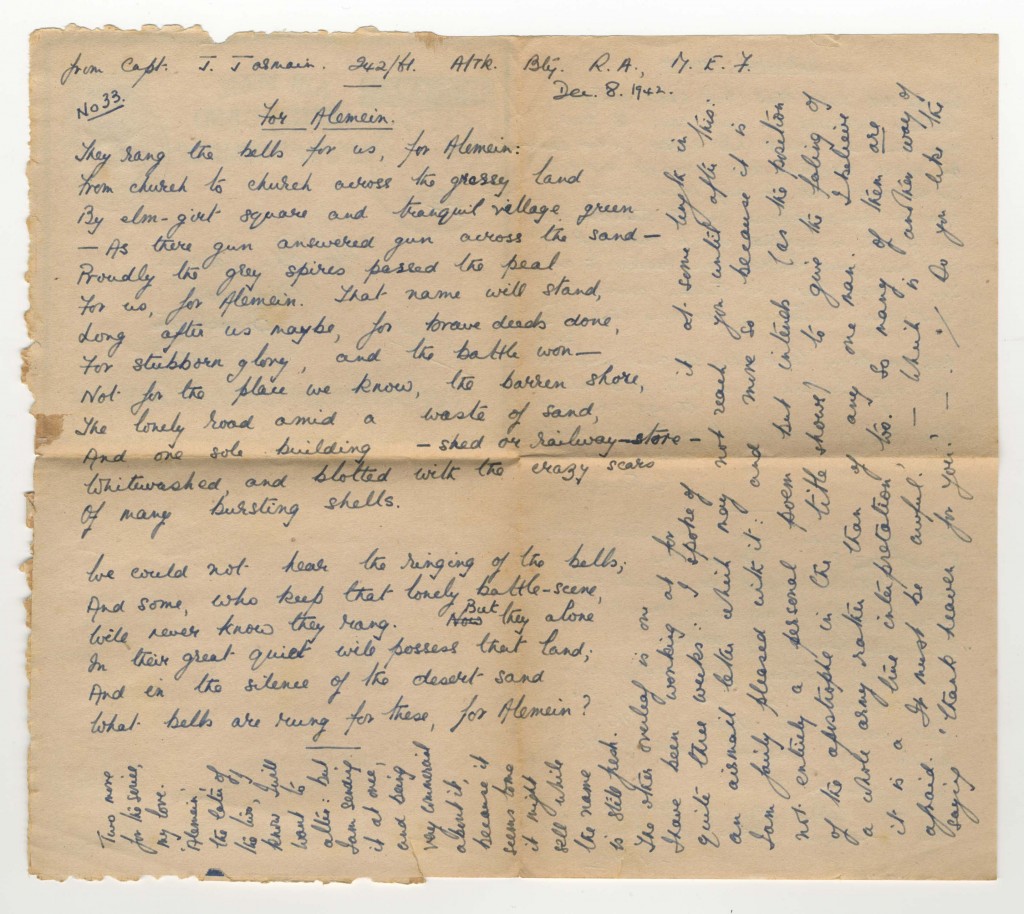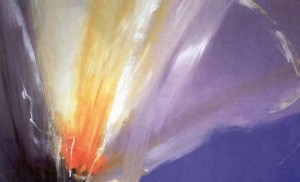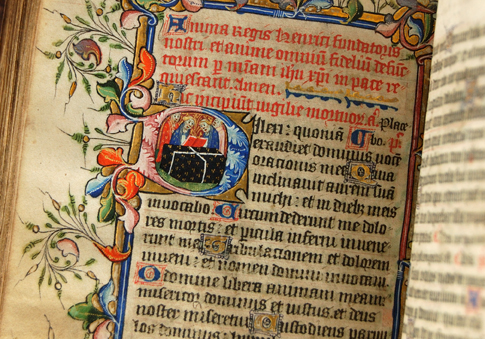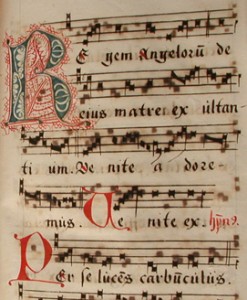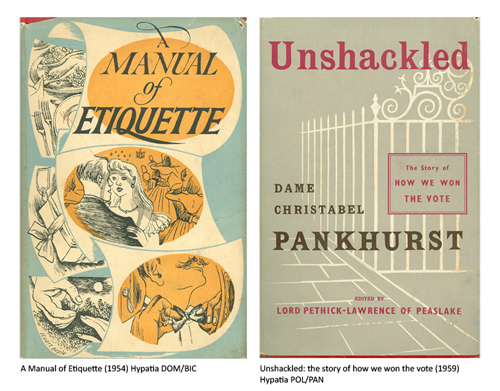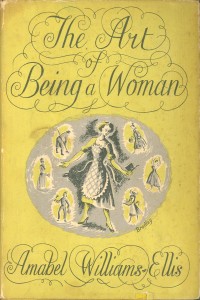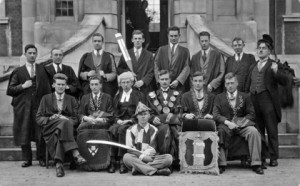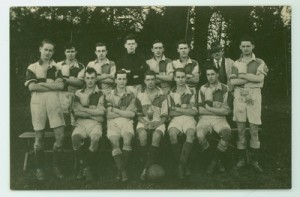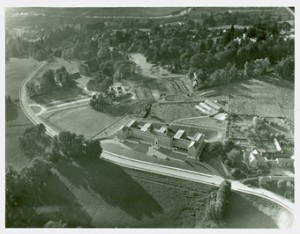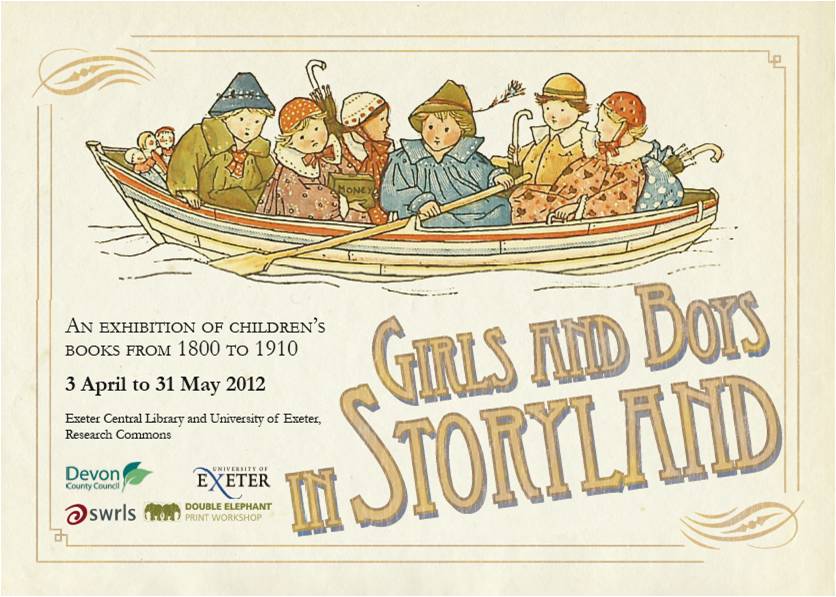John Jarmain Archive (EUL MS 413)
The Special Collections team manage archives and rare books and has its own reading room in the Research Commons, Old Library. We’re always keen to receive new deposits of archives and rare books, particularly relating to literature and west-country writers.
We’ve been incredibly fortunate to receive the archive of John Jarmain, a writer and poet who lived in Somerset and Dorset and was based in North Africa and Normandy during the Second World War. Jarmain was killed in Normandy in 1944 but he had ensured the survival of his war poems by sending them home to his wife, Beryl, in a series of letters and airgraphs. The poems were published posthumously.
Jarmain’s letters contain drafts of some of his best known war poems, together with references to his children, particularly his daughter, Janet Susan, who was born in August 1942 two years before Jarmain’s death. However, Janet only discovered the cash of letters in which the original drafts were contained in 1990 after her mother’s death. It took her ten years before she could bear to read them. Last year, to coincide with the 60th anniversary of Jarmain’s death, they were re-published and the originals have now been donated by Janet to the University of Exeter.
The archive is currently being catalogued and digitized and some of the letters are already available for research.
We are hoping that the archive and Janet’s fascinating story will feature on BBC TV next week. Look out for more blogs and library/Heritage collections tweets.
A Scan of the original “For Alamein” by John Jarmain in our new archive.

